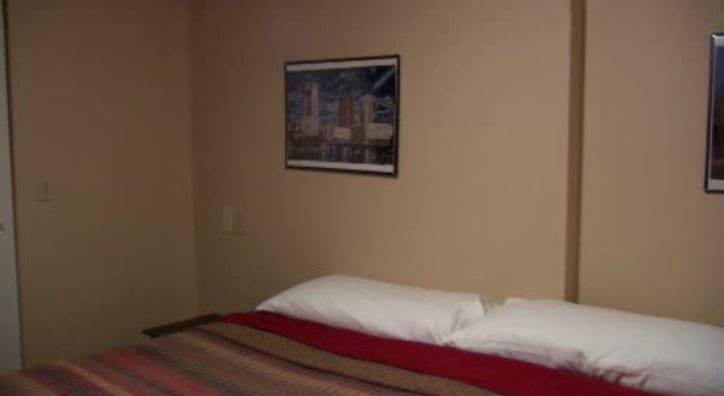Senate committee votes to overturn local short-term rental laws in Tennessee cities

By Joey Garrison and Jordan Buie
A Senate committee voted to advance controversial Republican-backed legislation that would overturn a Nashville ordinance set to gradually eliminate certain types of short-term rentals as well as similar prohibitions in other cities, including Knoxville.
The Senate Commerce and Labor Committee voted 7-2 to approve a now-revamped “Short Term Rental Unit Act” introduced by Sen. John Stevens, R-Huntingdon, and Rep. Cameron Sexton, R-Crossville. The bill now heads to the Senate floor for final approval after the House version passed last year.
The bill is supported by a booming short-term rental industry led by companies such as Airbnb.
A new amendment added Tuesday rewrote the legislation so it will grandfather in all existing short-term rentals, thus allowing them to continue to operate.
That means the bill would still block a Nashville ordinance passed in January to phase out most non-owner-occupied short-term rentals that currently exist in residential neighborhoods over the next three years. The bill also would block a similar prohibition that passed last year in Knoxville.
But under the same state bill, local municipalities could still prohibit certain types of short-term rentals.
“Obviously, I’m pleased with the outcome,” Stevens said after the bill passed in the committee. “I think it is a very difficult issue, but it’s our property and it’s a very personal issue. It’s a distinction between the property rights and government, even if it is local government.”
The earlier bill went further by proposing to pre-empt local cities and counties from instituting any type of ban over short-term rentals.
But a legal opinion released Friday from Tennessee Attorney General Herbert Slatery found a key piece of the bill would violate the state constitution because it would have treated local jurisdictions differently.
Local governments could still require grandfathered short-term rentals to acquire permits, under the newly written state bill. In addition, a local government could revoke a permit of a grandfathered unit if it violates standards on three separate occasions.
Sen. Steve Dickerson, R-Nashville, who is not a member of the committee, was entertained to speak against the measure. Dickerson called into question several aspects of the amendment dealing with revoking grandfathered permits.
“If there is a permit that is issued by a local government, there is a mechanism that they might revoke that permit,” Dickerson said. “It is my impression that (the amendment) is somewhat too restrictive. The bill makes it almost impossible to do that.”
But Stevens said he is open to some negotiation still.
A booming industry
Airbnb, HomeAway and other short-term rental companies for the second straight year have waged an aggressive lobbying push at the Tennessee General Assembly to counter attempts to scale back the industry locally, particularly in Nashville.
Nashville, which has undergone a tourism boom in recent years, has become Airbnb’s top market in the state and revenue maker for the company.
The Nashville Area Short-Term Rental Association urged approval of the bill in a letter to lawmakers. It responded to claims Metro Council members made in a Feb. 28 letter to the state committee in support of the city’s phase-out ordinance.
“We are regular folks working to make a living and want to contribute to our local and state economy,” the short-term rental association’s letter reads. “Please protect the property rights of all. Please vote to pass SB1086 with amendments.”
But neighborhood advocates have said short-term renting has displaced longtime residents by attracting investors who don’t live in the homes they rent out. They’ve also told horror stories about some non-owner-occupied homes turning into disruptive party hotels.
Regulations
Twenty-seven cities in Tennessee have rules that don’t allow non-owner-occupied short-term rentals in residential areas, including Knoxville, Brentwood, Germantown and Smyrna. Local officials say they are just following zoning laws that restrict businesses in residential areas.
Some cities have gone further by outlawing all short-term rentals, including owner-occupied types. These include Davidson County’s five satellite cities — Belle Meade, Berry Hill, Forest Hills, Goodlettsville and Oak Hill.
The Knoxville City Council approved rules late last year that restricted non-owner-occupied rentals in residential neighborhoods. Knoxville Mayor Madeline Rogero’s administration has said the controversial decision found middle ground between those who wanted short-term rentals and those who did not.
In Nashville, after a contentious yearlong debate over how to regulate the practice, the Metro Council voted 25-5 in January to phase out short-term rentals that aren’t occupied by their owners from residential-zoned neighborhoods.
The city’s ordinance applies primarily to traditional single-family homes and duplexes. The rollback on permits for this type of short-term renting is set to occur over the next three years and be completed by June 28, 2020.